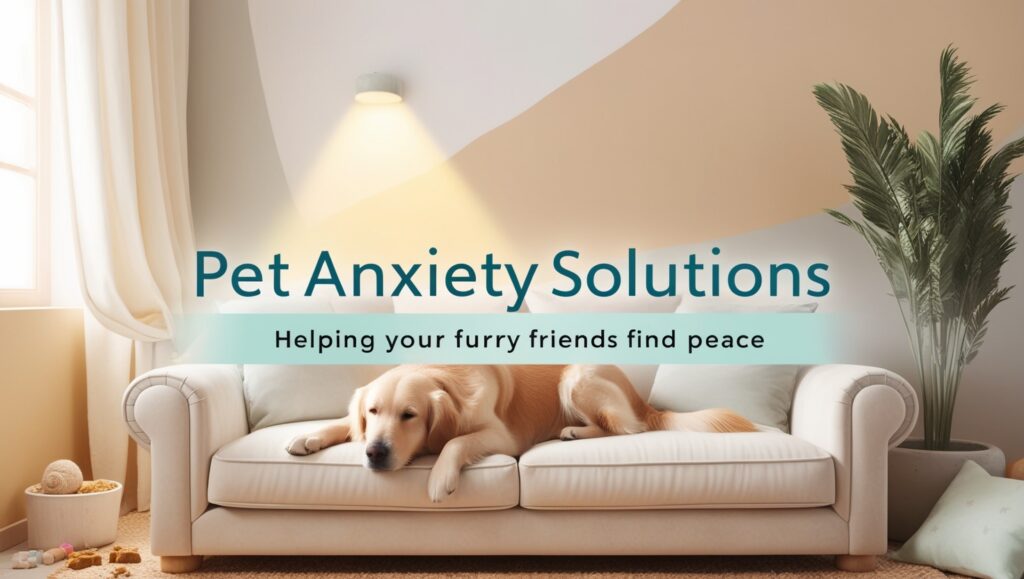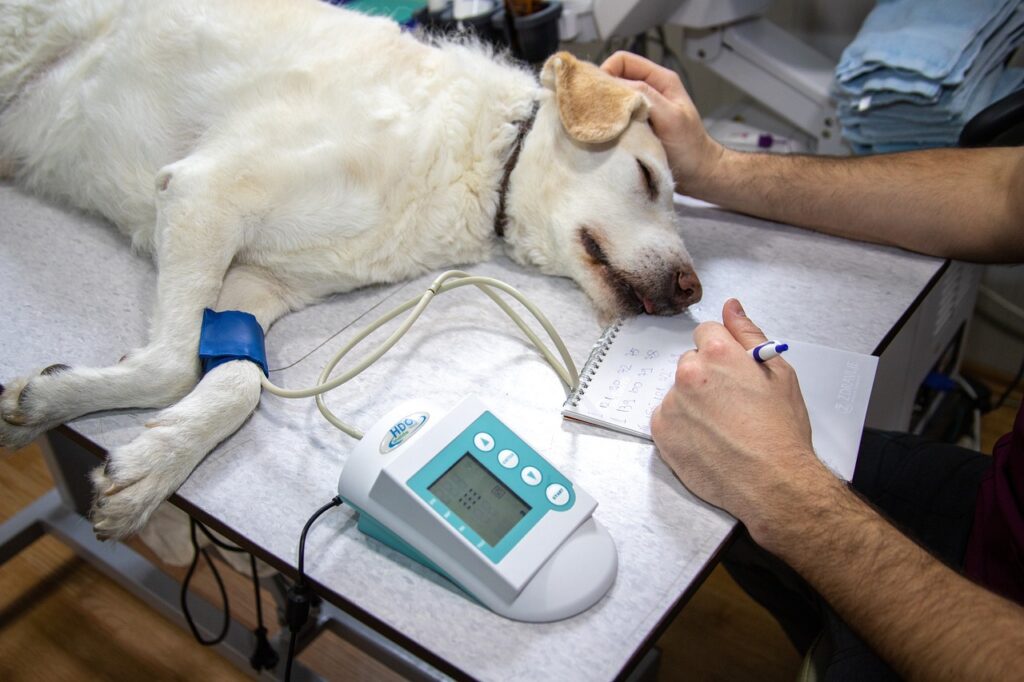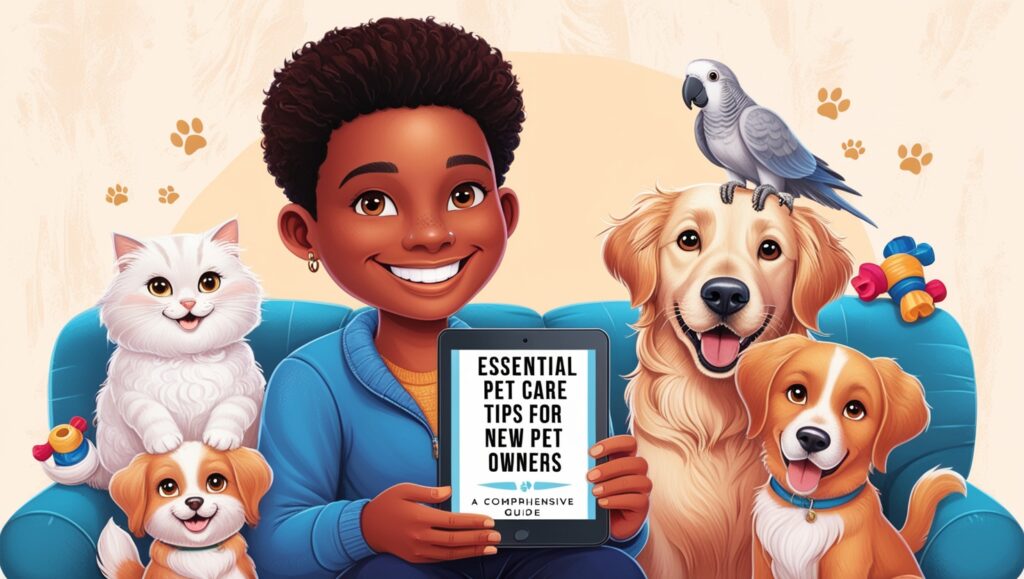Pet anxiety is a common issue that many pet owners face, but with the right approach, you can help your furry friend find comfort and tranquility. This comprehensive guide will explore various solutions to alleviate pet anxiety, providing you with practical tips and strategies to create a calm environment for your beloved companion.
Understanding Pet Anxiety
Pet anxiety can manifest in various ways, affecting dogs, cats, and other pets alike. It’s crucial to recognize the signs of anxiety in your pet to address the issue effectively.
Common Signs of Pet Anxiety
- Excessive barking or meowing
- Destructive behavior
- Trembling or shaking
- Hiding or seeking isolation
- Loss of appetite
- Excessive grooming or licking
- Restlessness or pacing
- Inappropriate elimination
Identifying these symptoms is the first step in helping your anxious pet. Remember, each animal is unique, and their anxiety may present differently.
Causes of Pet Anxiety
Understanding the root causes of your pet’s anxiety is essential for developing an effective treatment plan. Some common triggers include:
Environmental Factors
- Loud noises (thunderstorms, fireworks)
- Changes in living situation
- New family members or pets
- Unfamiliar surroundings
Separation Anxiety
- Being left alone for extended periods
- Changes in the owner’s schedule
Past Trauma
- Abuse or neglect in previous homes
- Negative experiences with other animals or humans
Medical Issues
- Chronic pain or illness
- Hormonal imbalances
By pinpointing the specific causes of your pet’s anxiety, you can tailor your approach to address their individual needs.
Creating a Calming Environment
One of the most effective ways to reduce pet anxiety is by creating a safe and calming environment at home. Here are some strategies to consider:
Designate a Safe Space
Create a quiet, comfortable area where your pet can retreat when feeling anxious. This could be a crate for dogs or a cozy corner for cats, equipped with their favorite toys and bedding.
Use Calming Scents
Certain scents, such as lavender or chamomile, can have a soothing effect on pets. Consider using pet-safe essential oils or pheromone diffusers to create a calming atmosphere.
Provide Background Noise
Soft music or white noise can help mask startling sounds and create a more relaxing environment for your pet.
Maintain a Consistent Routine
Pets thrive on routine, so try to keep feeding times, walks, and playtime consistent to provide a sense of security and predictability.
Behavioral Modification Techniques
Implementing behavioral modification techniques can help your pet overcome anxiety and develop more positive associations with triggers.
Desensitization and Counterconditioning
Gradually expose your pet to anxiety-inducing stimuli at a low intensity while pairing it with positive experiences. For example, if your dog is afraid of car rides, start by simply sitting in the parked car and offering treats.
Positive Reinforcement
Reward calm behavior with treats, praise, or playtime to encourage your pet to repeat those behaviors.
Redirecting Attention
When your pet shows signs of anxiety, redirect their focus to a favorite toy or engage them in a fun activity to distract from the stressor.
Training and Socialization
Proper training and socialization can help build your pet’s confidence and reduce anxiety in various situations. Consider enrolling in obedience classes or working with a professional trainer.
Exercise and Mental Stimulation
Regular exercise and mental stimulation are crucial for managing pet anxiety. Physical activity helps release pent-up energy and promotes the production of feel-good hormones.
Physical Exercise
- Daily walks or runs for dogs
- Interactive play sessions for cats
- Swimming or agility courses for high-energy breeds
Mental Stimulation
- Puzzle toys and treat-dispensing games
- Hide-and-seek with toys or treats
- Training sessions to learn new tricks
Aim for a balance of physical and mental activities to keep your pet engaged and reduce anxiety-related behaviors.
Natural Remedies and Supplements
Many pet owners find success in using natural remedies and supplements to alleviate their pet’s anxiety. Always consult with your veterinarian before introducing any new supplements to your pet’s routine.
Herbal Supplements
- Chamomile
- Valerian root
- Passionflower
Nutritional Supplements
- L-theanine
- Melatonin
- Omega-3 fatty acids
CBD Products
CBD oil and treats have gained popularity for their potential anxiety-reducing properties in pets. However, research is ongoing, and it’s essential to choose high-quality, pet-specific products.
Professional Help and Medication
In some cases, professional intervention may be necessary to address severe pet anxiety.
Veterinary Behaviorists
These specialists can develop a comprehensive treatment plan tailored to your pet’s specific needs.
Medication
For severe cases, your veterinarian may prescribe anti-anxiety medications to help manage your pet’s symptoms. These may include:
- Selective serotonin reuptake inhibitors (SSRIs)
- Benzodiazepines
- Tricyclic antidepressants
It’s crucial to work closely with your veterinarian to find the right medication and dosage for your pet.
Anxiety-Reducing Products
Several products on the market are designed to help reduce pet anxiety:
Thundershirts and Anxiety Wraps
These snug-fitting garments apply gentle pressure to your pet’s body, similar to swaddling a baby, which can have a calming effect.
Calming Collars
These collars release pheromones that can help reduce anxiety in dogs and cats.
Anxiety Beds
Specially designed beds with raised edges and soft materials can provide a sense of security for anxious pets.
White Noise Machines
These devices can help mask triggering sounds and create a more peaceful environment.
Conclusion
Helping your pet overcome anxiety requires patience, consistency, and a multi-faceted approach. By implementing a combination of environmental changes, behavioral techniques, and appropriate interventions, you can significantly improve your pet’s quality of life and strengthen your bond.
Remember that every pet is unique, and what works for one may not work for another. Be prepared to try different strategies and consult with professionals when needed. With time and dedication, you can help your furry friend find peace and enjoy a happier, more relaxed life together.
By addressing your pet’s anxiety, you’re not only improving their well-being but also creating a more harmonious home environment for the entire family. Stay committed to the process, celebrate small victories, and cherish the moments of calm and contentment with your beloved companion.



